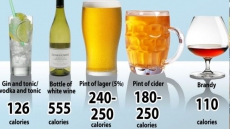People who are generally insecure in their relationships are more actively engaged on the social media site - frequently posting on walls, commenting, updating their status or "liking" something - in the hope of getting attention, researchers said.
The study suggests that there are at least two kinds of active Facebook users: people who are higher in attachment anxiety and people who are higher in extroversion.
People who were higher in attachment anxiety exhibited greater amounts of what the study refers to as "feedback seeking" on Facebook.
"Compared to more secure people, those higher in attachment anxiety are more feedback sensitive," said Joshua Hart, associate professor of psychology and the lead author from New York based Union College.
"They report feeling much better about themselves when they get a lot of comments, likes and other feedback on their posts and worse about themselves when their Facebook activity generates little attention, Hart pointed out.
In two surveys of nearly 600 people aged 18 to 83, researchers asked participants about their tendencies in close relationships and their Facebook habits.
"Because these people need a lot of reassurance that they are loved and are very sensitive to other people's opinions about them, they turn to Facebook," the authors noted.
'Anxiously attached individuals' level of feedback sensitivity correlates with how active they are on Facebook, Hart says, "and it appears that this strategy may work: they report receiving more attention than people lower in attachment anxiety."
As for extroverts' active Facebook use, the authors leave a fuller explanation to future research.
However, they note that the extroverts' reasons for active use are different from anxiously attached individuals' inclination toward frequent and varied posting as a platform to get positive attention to compensate for insecurities.
"These studies are consistent with many people's intuitions that some individuals use Facebook to fulfil emotional and relationship needs that are unmet in the 'real' world," Hart emphasised.
The study was published in the journal Personality and Individual Differences.





